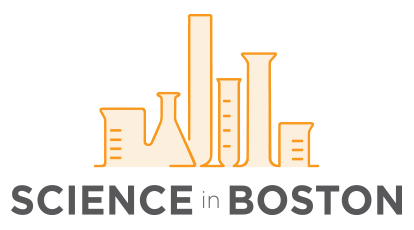Science Events in Boston
Stay up-to-date with all of the life science events taking place in the Greater Boston area with the Science in Boston events calendar! From academia to industry and biotech to pharma, our events calendar is your complete source for life science conferences, symposiums, networking, and workshops in Boston. We even cover science pub nights and science fundraisers!
If you’re interested in promoting your life science event on the Science in Boston events calendar, please use our event submission form.

- This event has passed.
Dana-Farber Targeted Protein Degradation Webinar Series: Dr. Stuart Schreiber
September 2, 2021 - 12:00 pm
30 years of Molecular Glues: Controlling cell circuitry in biology and medicine
Host: Alyssa Verano
Dr. Schreiber’s research integrates chemical biology and human biology to advance both our understanding of chemistry and biology, and the discovery of novel therapeutics. He is known for his use of small molecules to explore biology and medicine, and for his role in the development of the field of chemical biology. With Jerry Crabtree in 1991, his lab mapped the first membrane to nucleus signaling pathway (calcium–calcineurin–NFAT). His lab co-discovered mTOR in 1994 (simultaneously with Sabatini) and helped illuminate the mTOR-dependent nutrient-response signaling network. His lab discovered histone deacetylase (HDAC) and, together with David Allis and Michael Grunstein in 1996, the role of chromatin marks in gene expression. His work demonstrated for the first time that drugs can result from: 1) the targeting of protein kinases (sirolimus/mTOR) and protein phosphatases (sandimmune/ calcineurin); 2) gene regulation by chromatin-modifying enzymes (vorinostat/HDAC), 3) chemical inducers of proximity (CIPs) that activate cellular processes by enforced proximity (GVH Disease), and 4) targeting of the proteasome (bortezomib/proteasome). His research illustrated that many small molecules are bifunctional and act by inducing proximity of signaling proteins, which he coined ‘molecular glues’. The discovery of molecular glues and development of chemical inducers of proximity led conceptually to the targeted degradation of proteins by small-molecule ‘PROTACs’. These efforts accelerated the development of many additional widely used drugs and more generally the field of chemical biology.
Schreiber’s development of diversity-oriented synthesis has led to the discovery of many promising agents, including a novel mechanism of action anti-malarial agent being developed in collaboration with the pharmaceutical company Eisai (Nature, 2017). His most recent discovery revealed a novel cell state responsible for the ability of cancers to resist a wide range of therapies, and a means to target the cancer therapy-resistant state (Nature, 2017). His research has been reported in over 650 publications (H index = 147; Schreiber Publications) and recognized through numerous awards, most recently the Arthur C. Cope Award and the Wolf Prize in Chemistry.
Four new anti-cancer drugs that target proteins discovered in the Schreiber laboratory have been approved by the U.S. FDA: temsirolimus (Wyeth) and everolimus (Novartis), which target mTOR (discovered using rapamycin in 1994), for renal cancer, and vorinostat (Merck) and romidepsin (Celgene), which target HDACs (HDAC1 discovered using trapoxin in 1996), for cutaneous T-cell lymphoma; in addition, topical HDAC inhibitor remetinostat (Medivir, PII clinical trials for CTCL), was conceived and synthesized in the Schreiber lab. A small-molecule molecular-glue drug (AP1903) reversed the effects of graft-versus-host disease in acute leukemia patients receiving hematopoietic stem cells engineered to express caspase-9 fused to a drug-responsive, FKBP12-based dimerization domain (NEJM, 2011). Proteins first shown by Schreiber to be targeted by a small molecule have been validated therapeutically by the FDA-approval process: tacrolimus (calcineurin/immunosuppression/1994; Schreiber’s study of FK506) and bortezomib (proteasome/multiple myeloma/2003; Schreiber’s study of lactacystin).
Schreiber extended chemical biology principles to medicine by participating in the founding of ten biotech companies, beginning with Vertex Pharmaceuticals, whose efforts have made cystic fibrosis a manageable disease. These companies have developed many novel therapeutic agents that are being tested in human clinical trials or used as FDA-approved drugs including: Vertex Pharmaceuticals (founded 1989: fosamprenavir/Lexiva; telaprevir/Incivek; ivacaftor/Kalydeco), ARIAD Pharmaceuticals (founded 1991: ponatinib/Iclusig; brigatinib/Alunbrig), ARIAD Gene Therapeutics (founded 1994: ridaforolimus; AP1903), and Infinity Pharmaceuticals (founded 2001: retaspimycin; duvelisib). Earlier stage chemical biology-based companies formed by Schreiber include: Forma Therapeutics, H3 Biomedicines, Jnana Therapeutics, Kisbee Therapeutics, Kojin Therapeutics and oNeir Therapeutics. In 2020, Schreiber co-founded Scientists to Stop COVID-19, a nonpartisan science-based group who advise policy makers in U.S. executive, congressional and state governments, as well as leaders in the sports and entertainment industries.

